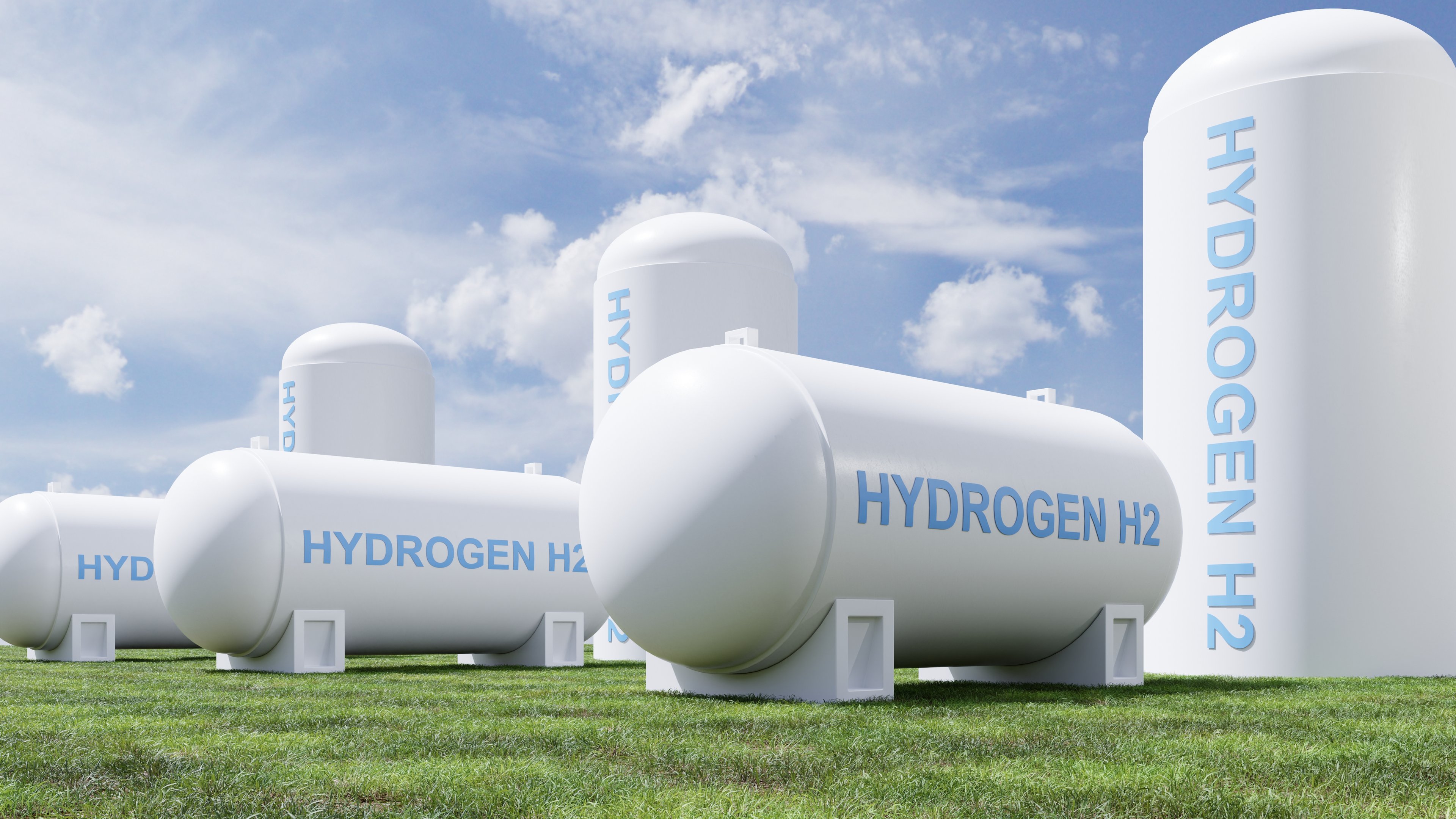With oil prices in turmoil and the coal industry in shambles, now may be the perfect time to invest in alternative energy stocks. The trouble is, how do you pick one? With solar, wind, and other green energy sources continually growing their market share, there are lots of potential picks to consider.
Today, let's compare pure-play hydrogen fuel cell specialist Plug Power (PLUG +4.42%) -- shares of which are up 33.8% so far this year -- with renewable energy generalist Brookfield Renewable Partners (BEP +0.71%), which is only up 3%. Which is the better buy?

Image source: Getty Images.
Narrow or wide focus
Plug Power is a leader in hydrogen fuel cell technology for vehicles. Its products have found a niche market in industries where extended downtime (to recharge a battery) isn't an option: Mostly warehouse forklifts and airport safety vehicles.
However, Plug wants to break out of this niche into the broader vehicle market. It's been working on fuel-cell-powered delivery vans and has provided small fleets of them to shipping giant DHL and to FedEx. Unfortunately for Plug, batteries remain the dominant alternative vehicle fuel, and with gasoline prices so low right now, the economic argument for switching to alternative-fuel delivery vans is likely to take a hit.
Conversely, master limited partnership (MLP) Brookfield Renewable Partners invests across the renewable energy spectrum and sells the electricity it generates to utilities. The bulk of its revenues come from hydroelectric dams, but it also operates significant wind and solar infrastructure. In March, the company agreed to buy the 38% of solar and wind energy company TerraForm Power that it didn't already own, which will not only increase its exposure to wind and solar but will up the size of its renewable energy portfolio to about $50 billion.
Winner: Brookfield Renewable Partners
The value proposition
Brookfield is much larger than Plug, with a market cap of $8.6 billion to Plug's $1.4 billion. Both stocks, though, have outperformed the broader market over the last five years. Plug's shares are up 65.2% during that time, while Brookfield's have risen 44.9%, or 94.9% if you factor in Brookfield's distribution (the MLP version of a dividend). Both companies outperformed the S&P 500's 38.2% return.
Even after that outperformance, Brookfield's valuation hasn't skyrocketed. Although its P/E ratio of 148.1 may seem unbelievably high at first, it's important to remember that Brookfield owns a lot of infrastructure assets, and companies with high depreciation expenses often have high P/E ratios. Brookfield's enterprise value (EV) to EBITDA ratio, which strips out depreciation, is a much more reasonable 17.78. That's near the higher end of its 10-year range, indicating that investors are willing to pay a premium for the stock.
As for Plug, it's tough to assess its valuation, because the company has never posted an annual profit in its more-than-20-year history, so price-to-earnings ratio can't be calculated. Plug also hasn't had positive EBITDA since 2015, meaning that EV-to-EBITDA can't be calculated either. Same thing with price-to-free cash flow: Its cash flow has never been positive.
That leaves price-to-book and price-to-sales as the only valuation metrics -- albeit, imperfect ones -- we can measure for both companies. And still, Brookfield beats Plug in both cases, with lower price-to-book (1.6 to 10.1) and price-to-sales (2.8 to 4.4) ratios.
Winner: Brookfield Renewable Partners
Growth prospects
Plug's financials are clearly inferior to Brookfield's, but we can't ignore the possibility that Plug is on the cusp of explosive growth that will forever kiss those net losses and negative cash flows goodbye. Maybe it's the 1998 Amazon of fuel cells.
Sadly, that doesn't seem likely. Plug has been overpromising and underdelivering for many years, and that seems unlikely to change given the current economic situation. Cheap crude oil is likely to stick around for a long time, which hurts the economic case for switching to alternative-fuel vehicles. Meanwhile, natural gas -- from which much of the hydrogen that powers hydrogen fuel cells is derived in the U.S. -- may be about to get more expensive, undermining the economic argument even further.
Interestingly, this same situation could benefit Brookfield. If the price of natural gas -- a key power plant fuel -- rises, renewable power becomes more attractive. And with low oil prices wreaking havoc on the oil industry, energy investors may be more inclined to invest in renewables. Brookfield looks like the company with the better growth prospects.
Winner: Brookfield Renewable Partners
And the winner is...
This wasn't much of a contest. Even though it may not be priced at a discount, Brookfield Renewable Partners beats Plug Power hands down. Investors looking to put money into green energy should consider taking a stake in Brookfield.









